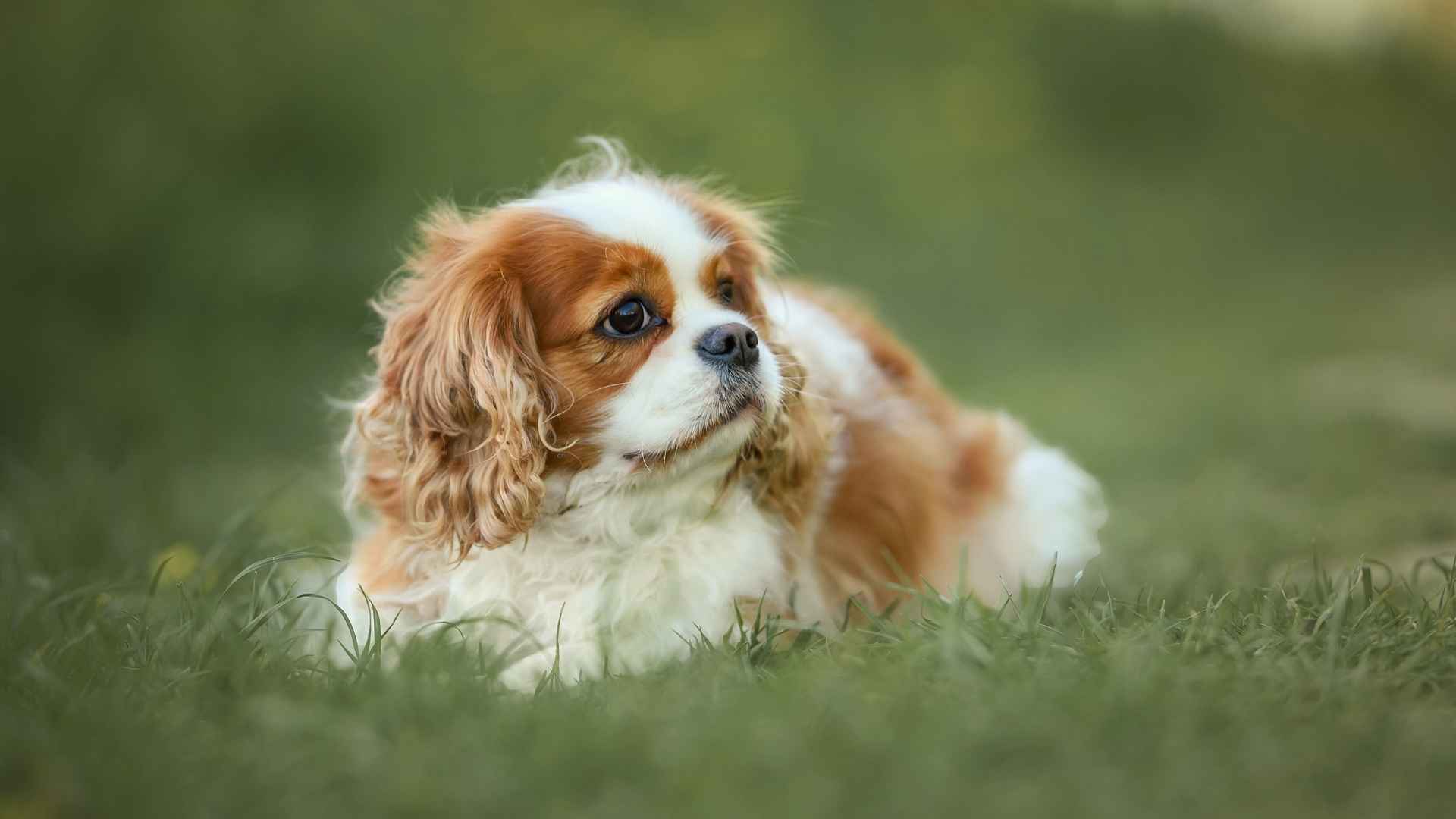Not all dogs are unpredictable. Some breeds are known for their calm, steady nature, making them ideal for families, seniors, and even busy professionals. Choosing a reliable breed can bring peace of mind if you’ve ever worried about erratic behavior, excessive barking, or unpredictable aggression. Stability in a dog’s temperament makes training easier and strengthens trust between you and your pet.
A low unpredictability breed eliminates the guesswork, ensuring a smoother experience in everyday life. Whether you have children, frequent visitors, or a structured routine, a well-balanced dog adapts effortlessly. The right breed will remain composed in social settings, reducing stress and uncertainty.
If you’re looking for a dog that fits seamlessly into your lifestyle, this list will introduce you to breeds known for their dependability, trainability, and unwavering companionship.
Did you know?
Dogs with predictable temperaments are often chosen as therapy animals, offering emotional support to hospitals, schools, and nursing homes!
Low Unpredictability Dog Breeds
1. Bichon Frise
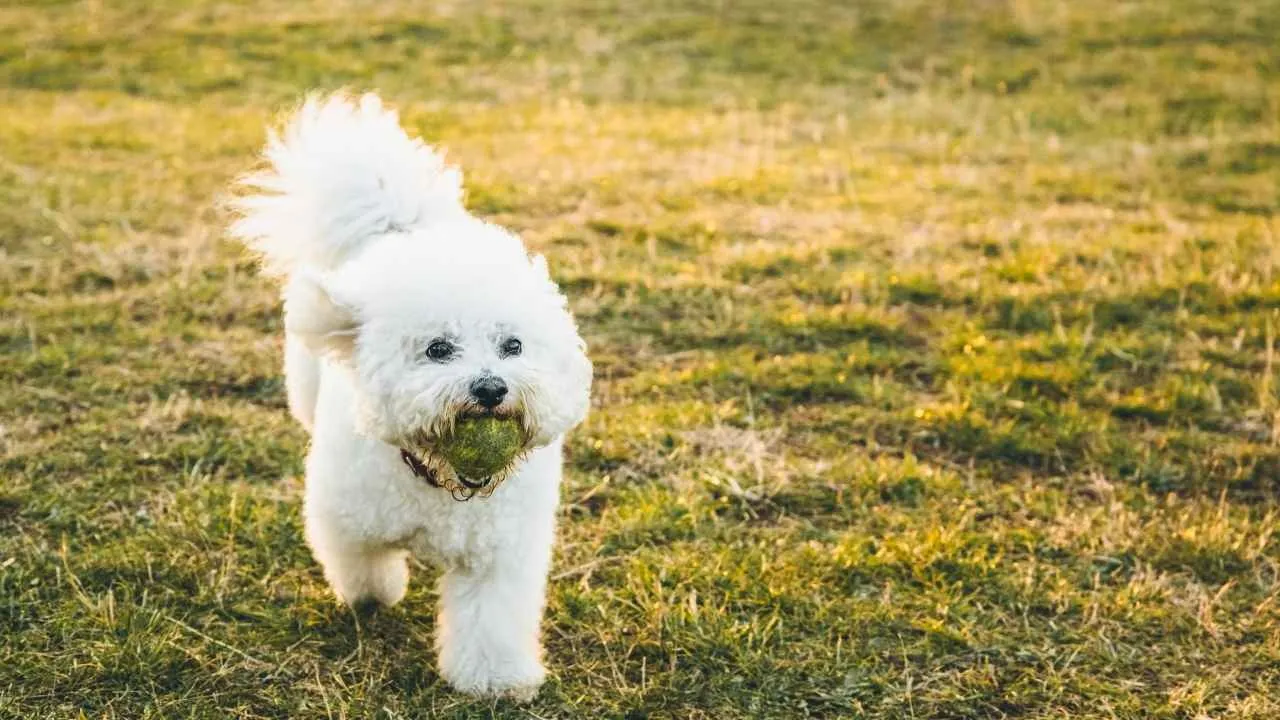
The Bichon Frise is a low unpredictability breed known for its steady temperament and adaptable nature. This small, fluffy dog thrives in various environments, making it an easygoing choice for those who appreciate predictability in behavior without sacrificing playfulness.
Regular exercise keeps the Bichon Frise happy but doesn’t require excessive physical activity. Short walks and interactive play sessions are enough to keep it mentally and physically engaged. Its cheerful attitude makes it an entertaining companion that easily adjusts to daily routines.
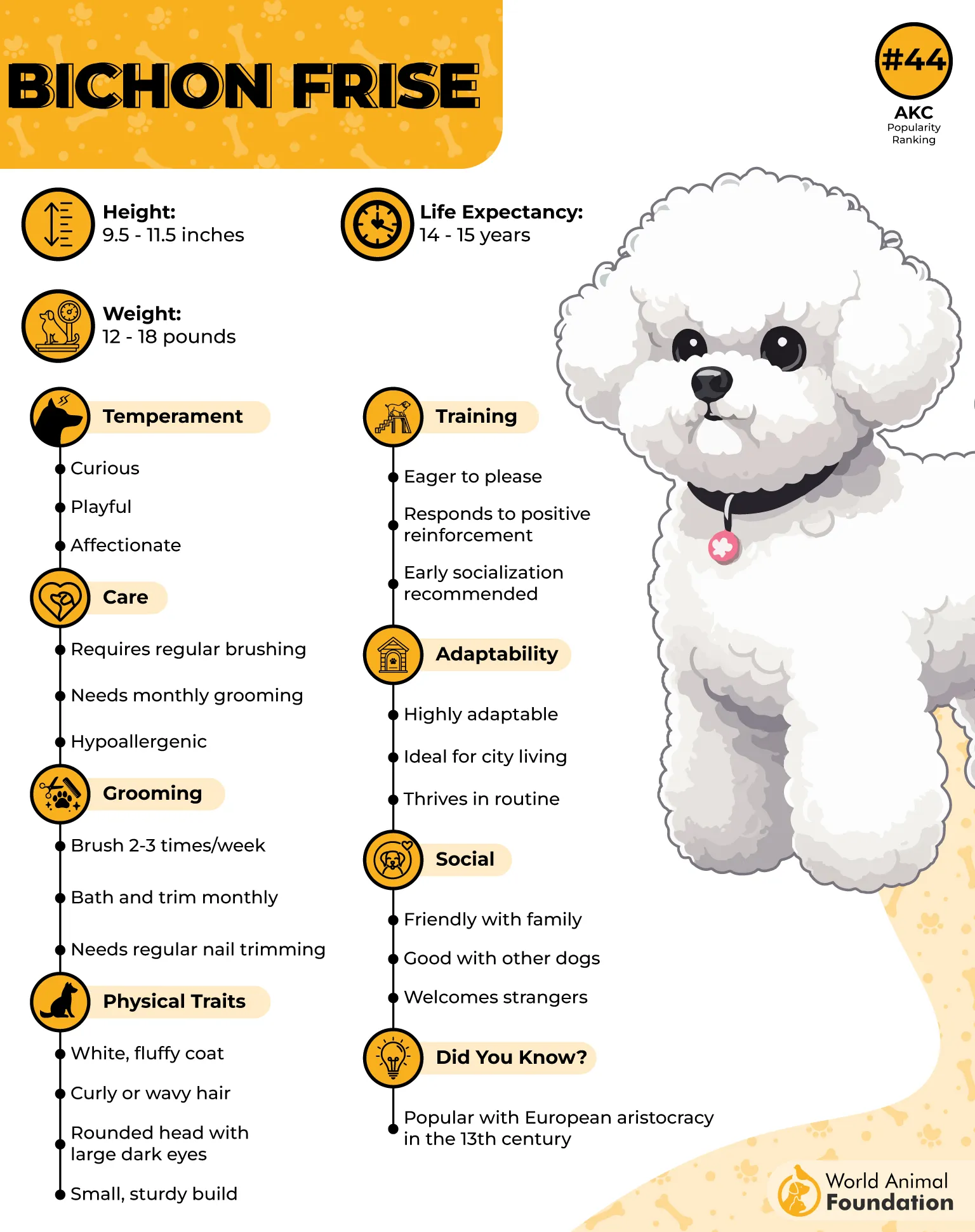
This breed’s luxurious, hypoallergenic coat requires consistent grooming. Routine brushing and professional grooming appointments help maintain its signature look. Without proper care, the coat can mat, making regular upkeep essential. Despite the maintenance, the Bichon Frise sheds minimally, making household cleanup much easier.
According to AKC, training a Bichon Frise is enjoyable due to its eager-to-please nature. Positive reinforcement methods work exceptionally well, reinforcing commands and behaviors quickly. Socialization from an early age ensures that it remains confident and well-mannered, preventing any unnecessary nervousness in new situations.
One of the most notable traits of the Bichon Frise is its ability to get along with different people and pets. This breed seamlessly integrates into households with various lifestyles, adapting without stress. Its steady demeanor makes it a consistently delightful presence.
Fun Fact
The Bichon Frise was a favorite among European royalty, often accompanying nobles in lavish courts. Despite its luxurious past, this breed remains playful and entertaining its owners with amusing antics and joyful energy.
2. Cavalier King Charles Spaniel
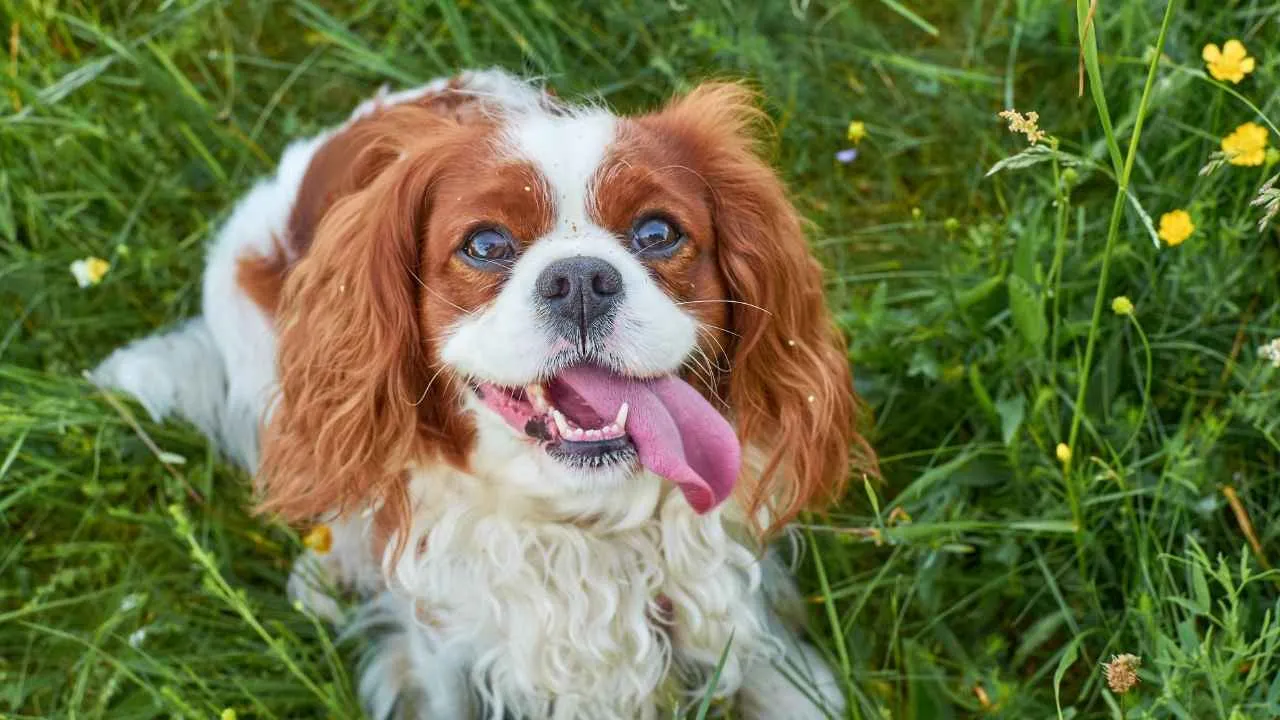
You know what to expect with a Cavalier King Charles Spaniel—an affectionate, well-mannered, and consistently friendly dog. Its predictable temperament makes it a favorite among those who appreciate reliability in canine behavior while still enjoying an energetic and lively companion.
Cavaliers are highly adaptable to different living environments. Whether in an apartment or a spacious home, they adjust seamlessly. Their moderate energy levels allow them to enjoy both active play and relaxed lounging, creating a well-balanced lifestyle that suits many owners.
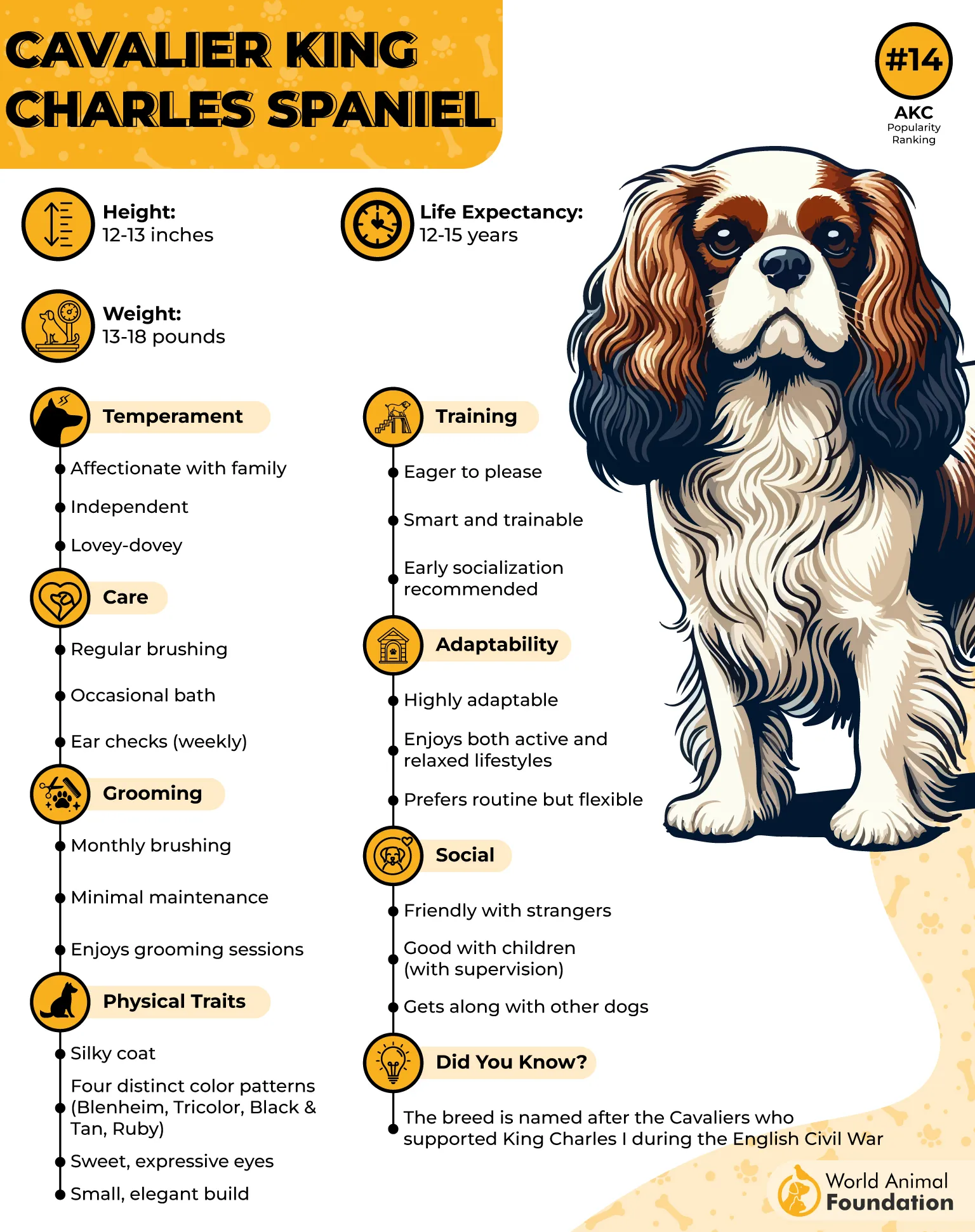
While their coat is silky and beautiful, it does require routine care. Regular brushing prevents tangles, especially around the ears and chest. Shedding occurs moderately, but their coat remains manageable with proper maintenance and always looks elegant.
This breed thrives on human interaction and enjoys engaging with family members. Socialization is second nature, making them naturally friendly with strangers and other pets. Their affectionate demeanor ensures they form close bonds, often staying near their owners throughout the day.
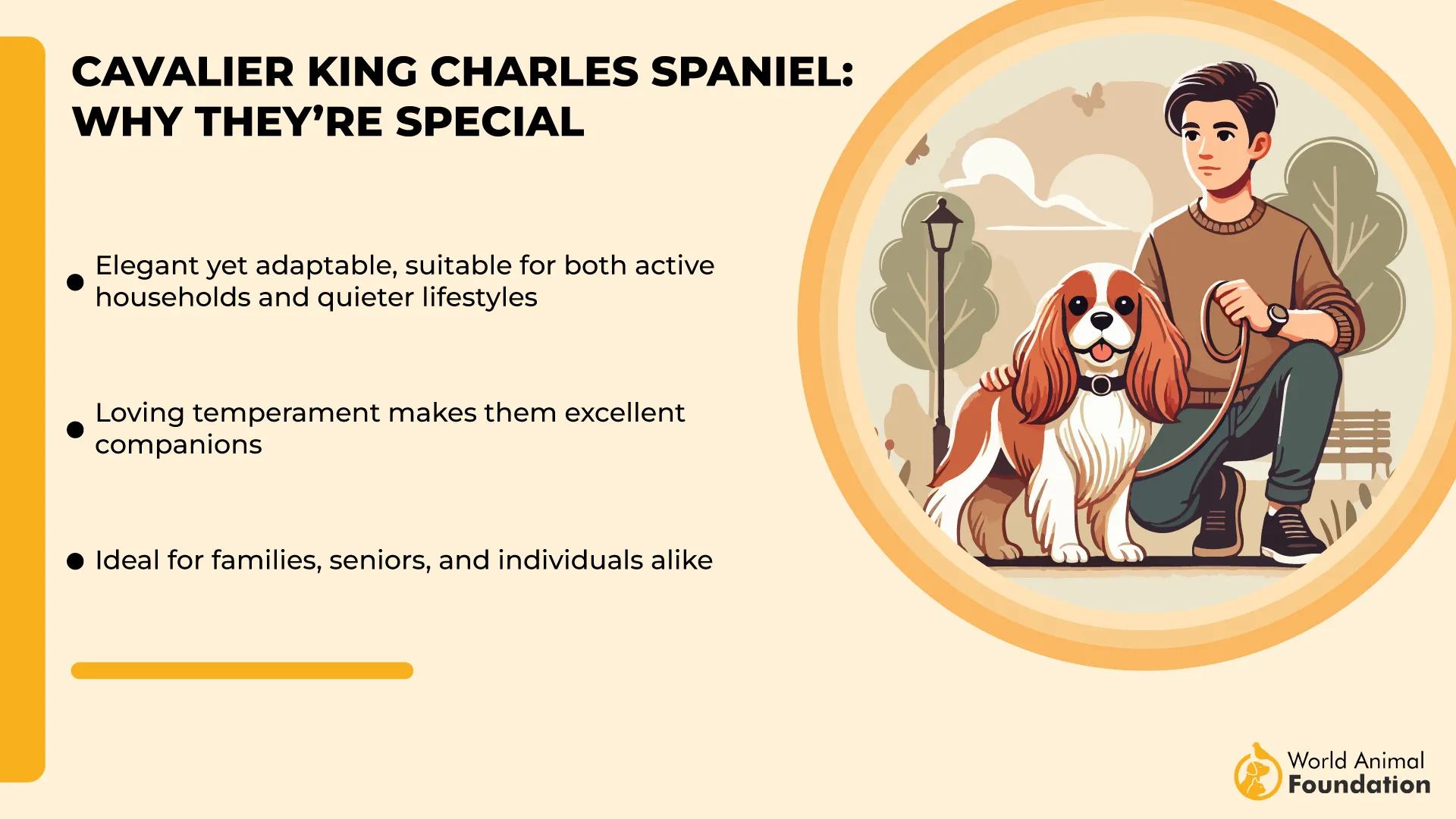
Despite their friendly nature, Cavaliers respond well to training and structure. They enjoy learning commands and pick up on cues quickly. A gentle training approach works best, reinforcing positive behaviors while ensuring they remain attentive and eager to learn new skills.
Fun Fact
Cavalier King Charles Spaniels were named after King Charles II of England, who was rarely seen without them. They were so beloved that historical records mention the breed frequently accompanying the king wherever he went.
3. Golden Retriever
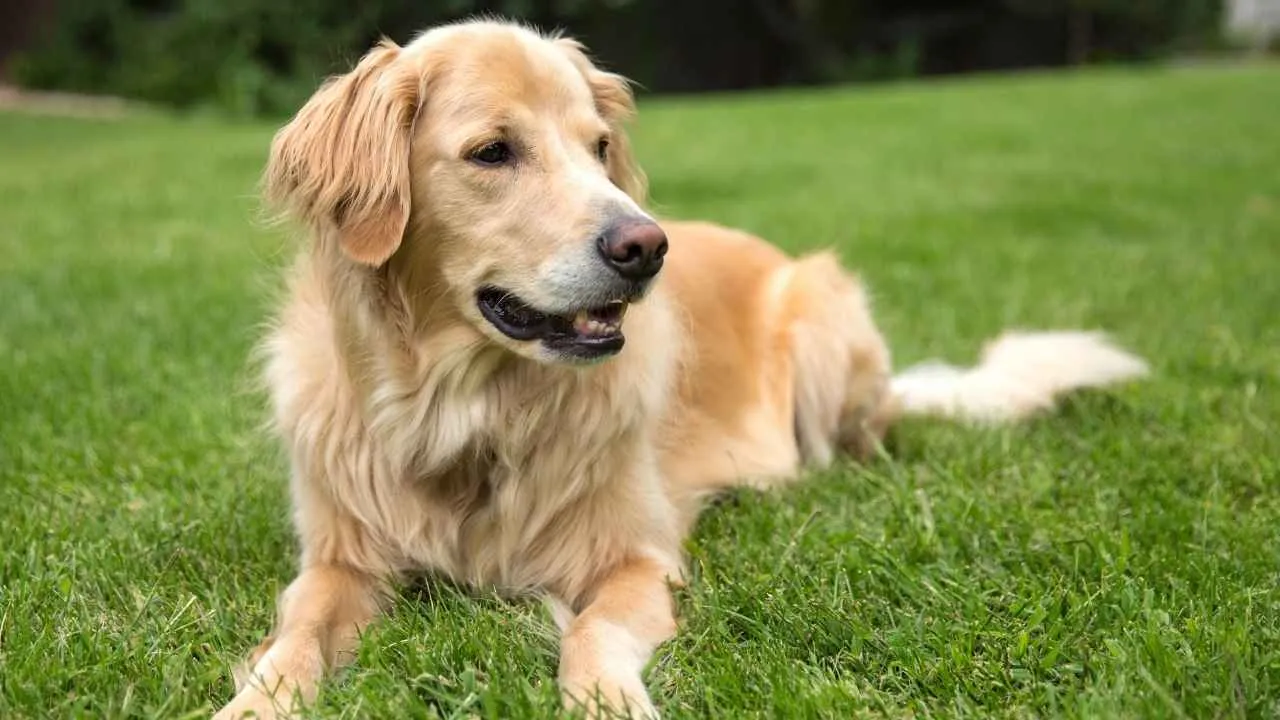
A Golden Retriever is the epitome of a predictable and steady-natured breed. It consistently exhibits intelligence, trainability, and an unwaveringly friendly attitude. This makes it a dependable choice for various roles, excelling in service work, play, and everyday companionship.
Energetic yet well-balanced, Golden Retrievers require daily physical activity to stay happy and healthy. Whether retrieving, swimming, or running, they thrive when engaged in dynamic exercises. Their enthusiasm for outdoor adventures keeps them active and eager for new challenges.

According to PetMD, this breed’s dense, water-resistant coat requires consistent grooming. Brushing multiple times a week reduces shedding and prevents matting. Seasonal shedding increases maintenance needs, but routine care ensures their coat remains clean, smooth, and free from excessive loose fur.
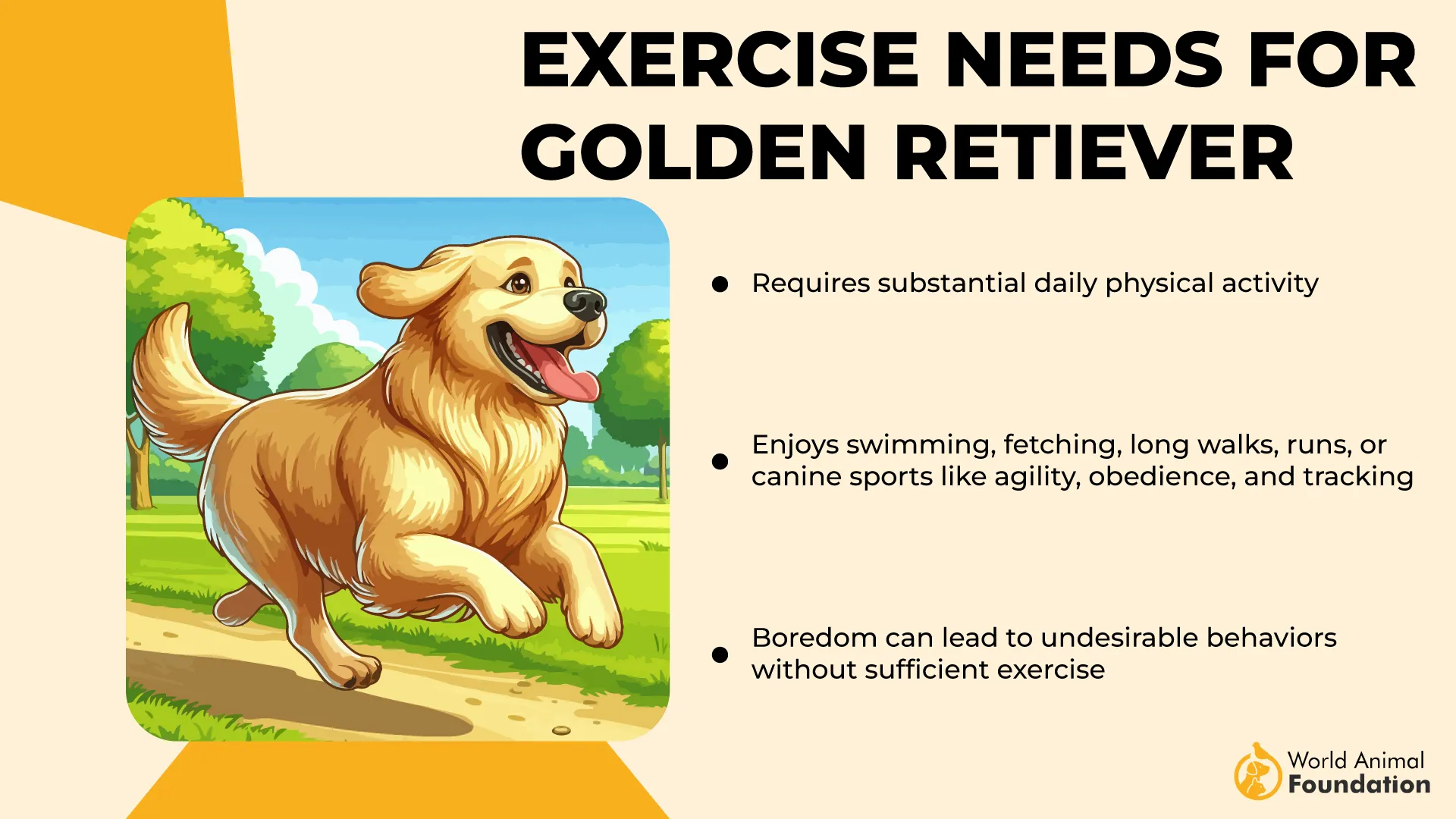
Golden Retrievers are known for their sharp minds and eagerness to learn. Their ability to grasp commands quickly makes training straightforward. They excel in obedience and agility, responding enthusiastically to positive reinforcement and structured learning environments.
Social and affectionate, this breed forms strong bonds with family members. Whether in active households or calm environments, their adaptability shines through. Their well-balanced temperament ensures they remain friendly, gentle, and dependable.
Fun Fact
Golden Retrievers have an extraordinary sense of smell and are frequently used in search-and-rescue operations. Their keen noses and problem-solving skills make them invaluable in locating missing individuals across challenging terrains.
4. Labrador Retriever
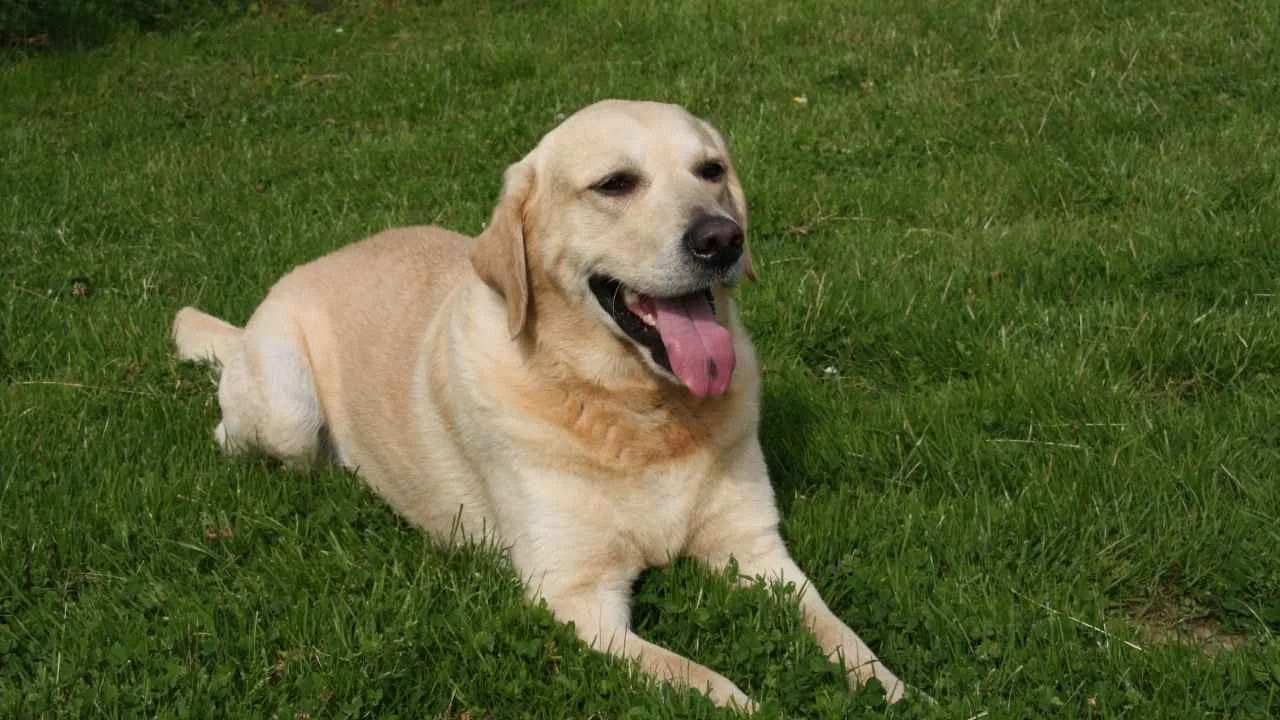
Labrador Retrievers are well-known for their steady temperament, making them highly predictable in various situations. Their calm demeanor and adaptability allow them to handle changing environments with ease. Whether in a family home or a working role, they remain reliable.
Labradors thrive on daily activity and mental stimulation, excelling in everything from retrieving games to advanced obedience training. Their energy levels are high but well-managed with structured exercise. Without enough activity, they may become restless, emphasizing the importance of engagement.
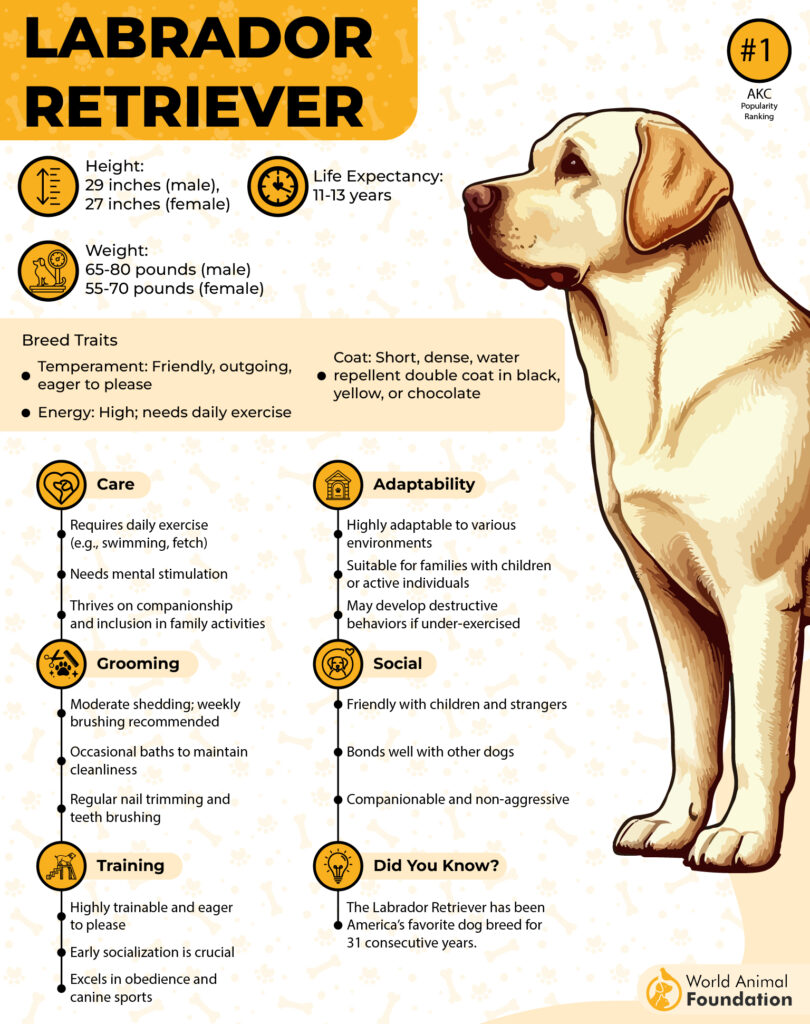
Their double-layered coat protects them in different climates, but it does require maintenance. Shedding is moderate throughout the year, with seasonal increases. Regular brushing helps keep their coat healthy and reduces loose fur around the home.
This breed has a well-balanced diet requirement, benefiting from high-quality food tailored to their energy output. Portion control is essential to prevent weight gain, as Labradors are prone to overeating if not properly managed.
Strong social tendencies make them naturally friendly with people and other animals. Early socialization reinforces their positive behaviors, ensuring they remain confident and well-mannered in diverse social settings. Their amiable nature contributes to their widespread popularity.
Fun Fact
Labradors have an exceptional sense of smell, often used in search-and-rescue missions. Their ability to detect scents is so precise that they can locate missing persons or identify medical conditions through scent recognition.
5. Saint Bernard
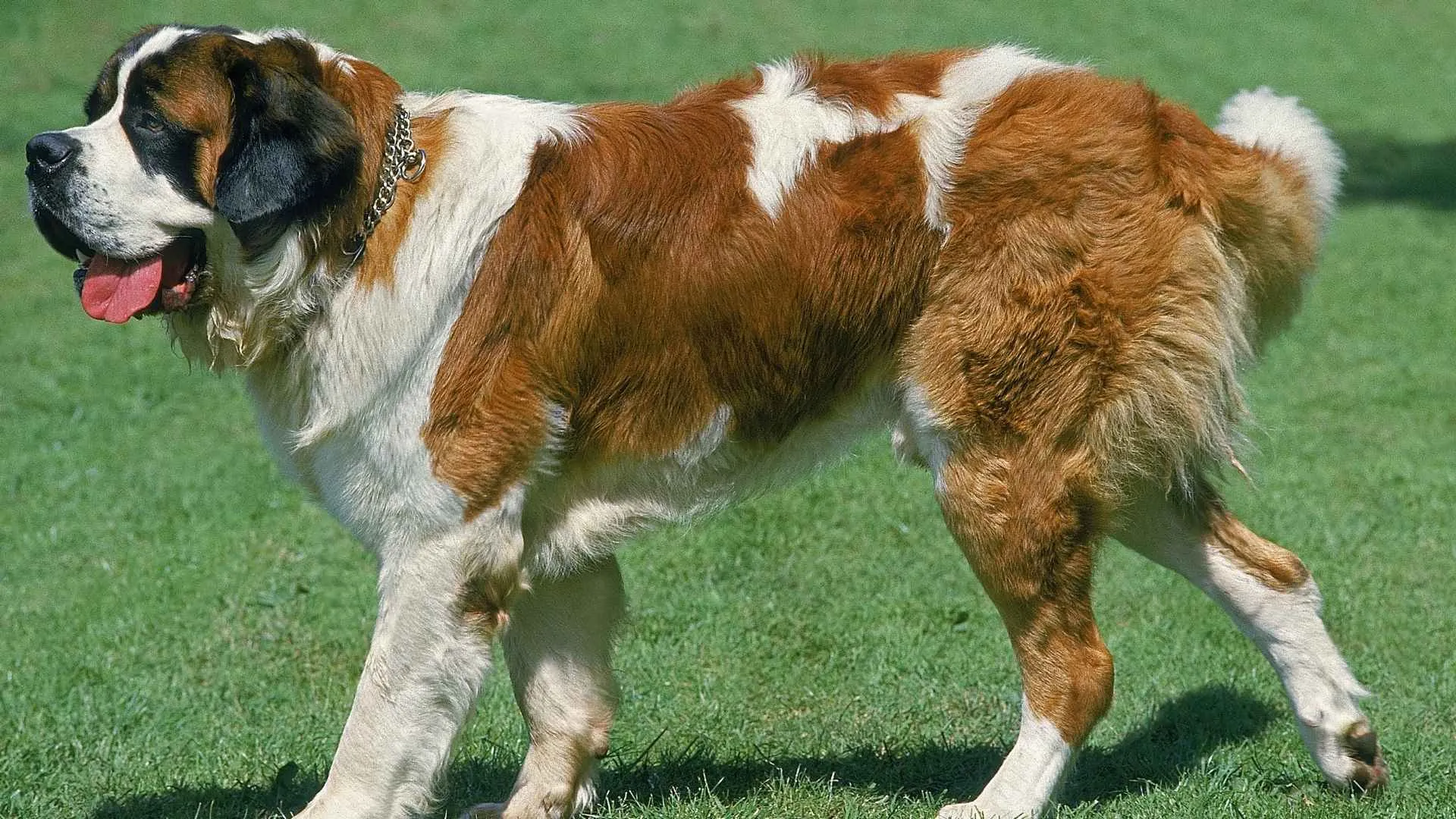
Saint Bernards are famous for their composed and steady nature, making them one of the least unpredictable breeds. Their patience and gentle demeanor make them dependable, whether they are in a family home or performing rescue duties in snowy regions.
With their large build, exercise is essential to keep them healthy. They enjoy outdoor walks but do not require excessive activity. Despite their size, they move with surprising agility when motivated. Keeping them active prevents joint issues and supports overall well-being.
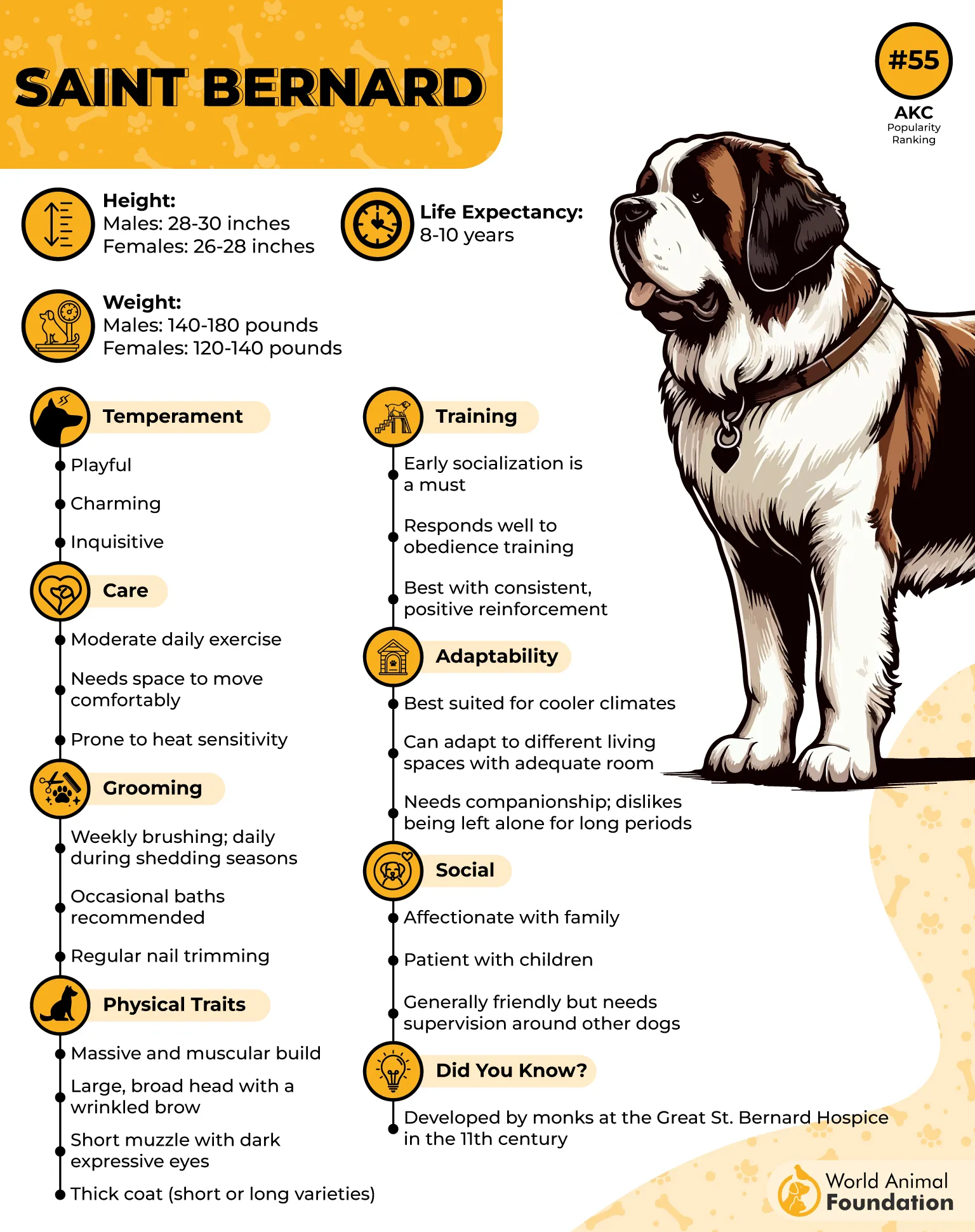
According to WebMD, their thick coat protects against harsh weather but demands regular grooming. Shedding can be significant, especially during seasonal changes. Routine brushing helps manage fur buildup and keeps their coat in top condition, preventing matting or tangling.
Saint Bernards benefit from a carefully balanced diet, as their size makes them prone to weight-related issues. Controlled feeding with high-quality food ensures steady growth and sustained energy levels. Avoiding excessive treats helps maintain their ideal weight.
Their intelligence allows them to grasp commands quickly, but training requires patience. Their independent nature means they respond best to consistent reinforcement. Early training establishes good behavior, ensuring they remain manageable as they grow into their massive frame.
Fun Fact
Saint Bernards were originally bred for mountain rescue work in the Swiss Alps. These dogs have saved countless lives by detecting stranded travelers and providing warmth in freezing conditions.
6. Newfoundland
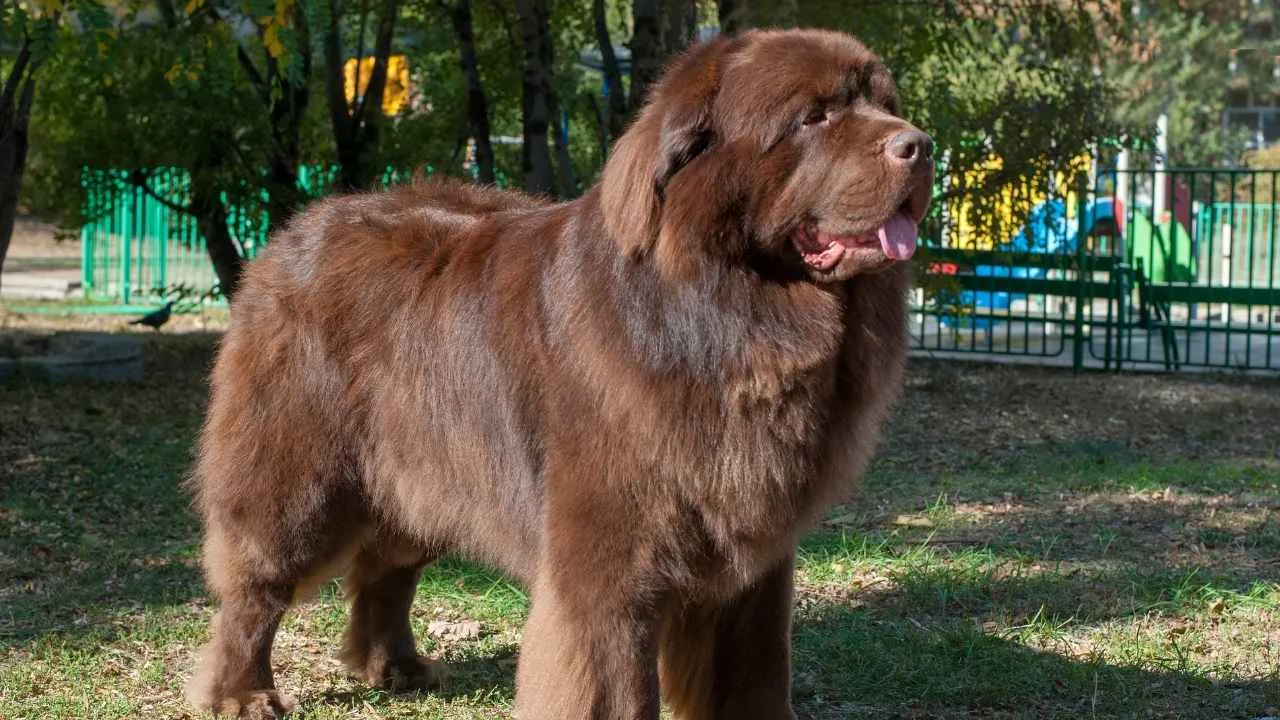
Newfoundlands are renowned for their even temperament, making them one of the most predictable breeds. Their composed nature allows them to remain calm under various circumstances, whether they are assisting in water rescues or relaxing at home.
As natural swimmers, they excel in water-based activities. Their webbed feet and powerful strokes make them exceptional at lifesaving work. Regular swimming provides them with exercise and keeps them mentally stimulated and engaged.
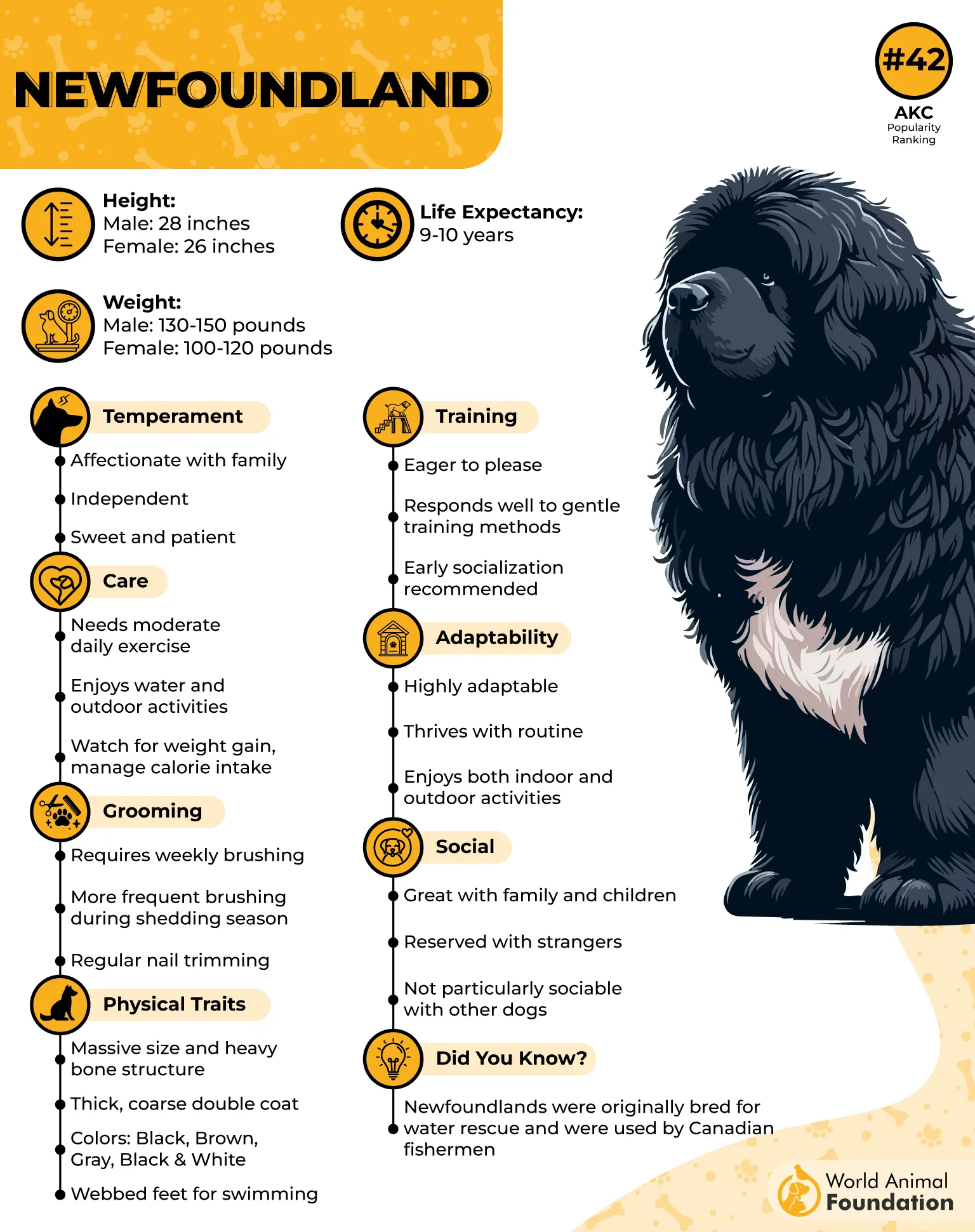
Their dense coat is water-resistant but requires routine care. Without proper maintenance, their fur can become matted or tangled. Weekly brushing is necessary to remove loose hair and prevent dirt accumulation, keeping their coat in good condition.
Newfoundlands are known for their gentle approach with children. Their patience and protective instincts make them a solid presence in family settings. Supervised interaction ensures they maintain their calm disposition while engaging with younger members of the household.
Training a Newfoundland requires consistency, as their size can become challenging without proper guidance. They respond well to positive reinforcement, learning commands at a steady pace. Early socialization helps refine their naturally friendly nature.
Fun Fact
Newfoundlands have an impressive swimming ability, and their history includes saving people from drowning. They have even been known to pull boats to shore using their powerful strokes and unwavering determination.
7. Maltese
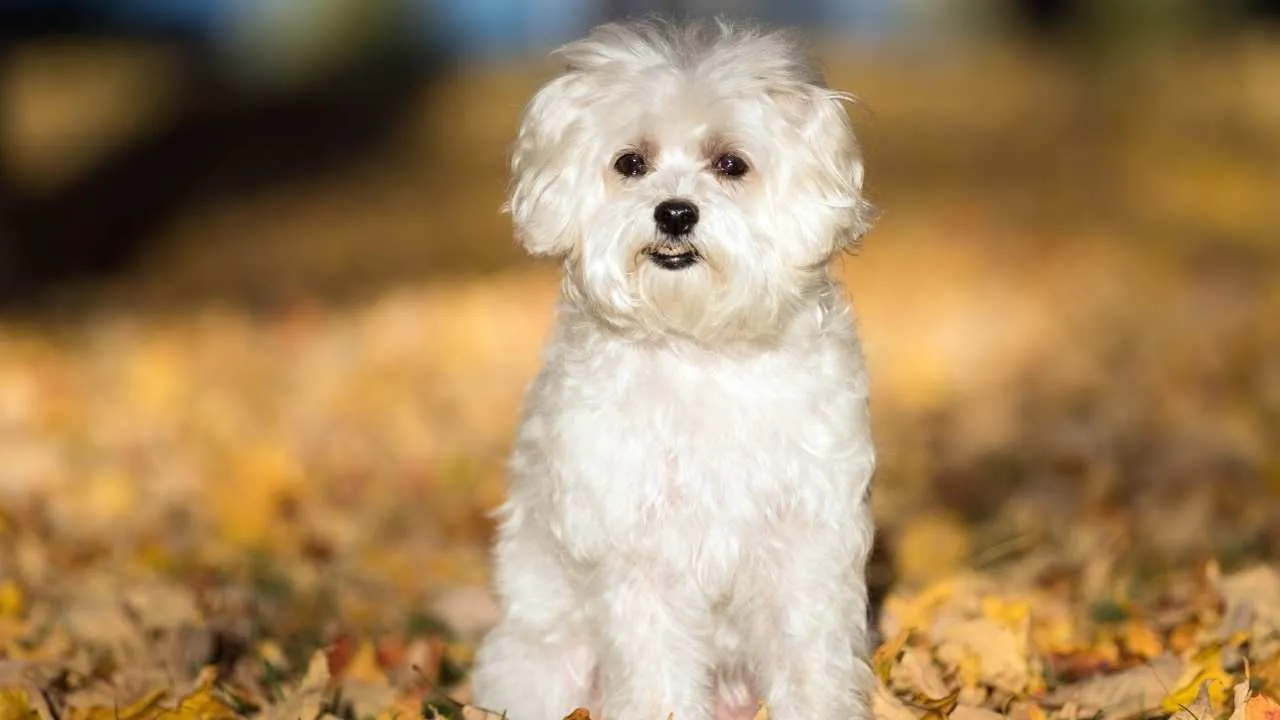
The Maltese breed is known for its stable personality, making it one of the least unpredictable small dogs. Despite their tiny size, they exhibit confident behavior in different settings, whether at home or in public spaces.
They require minimal exercise, thriving on short walks and indoor play. While active, they do not demand extensive physical activity. Mental stimulation, such as puzzle toys, keeps them engaged and prevents boredom-related behaviors from developing.
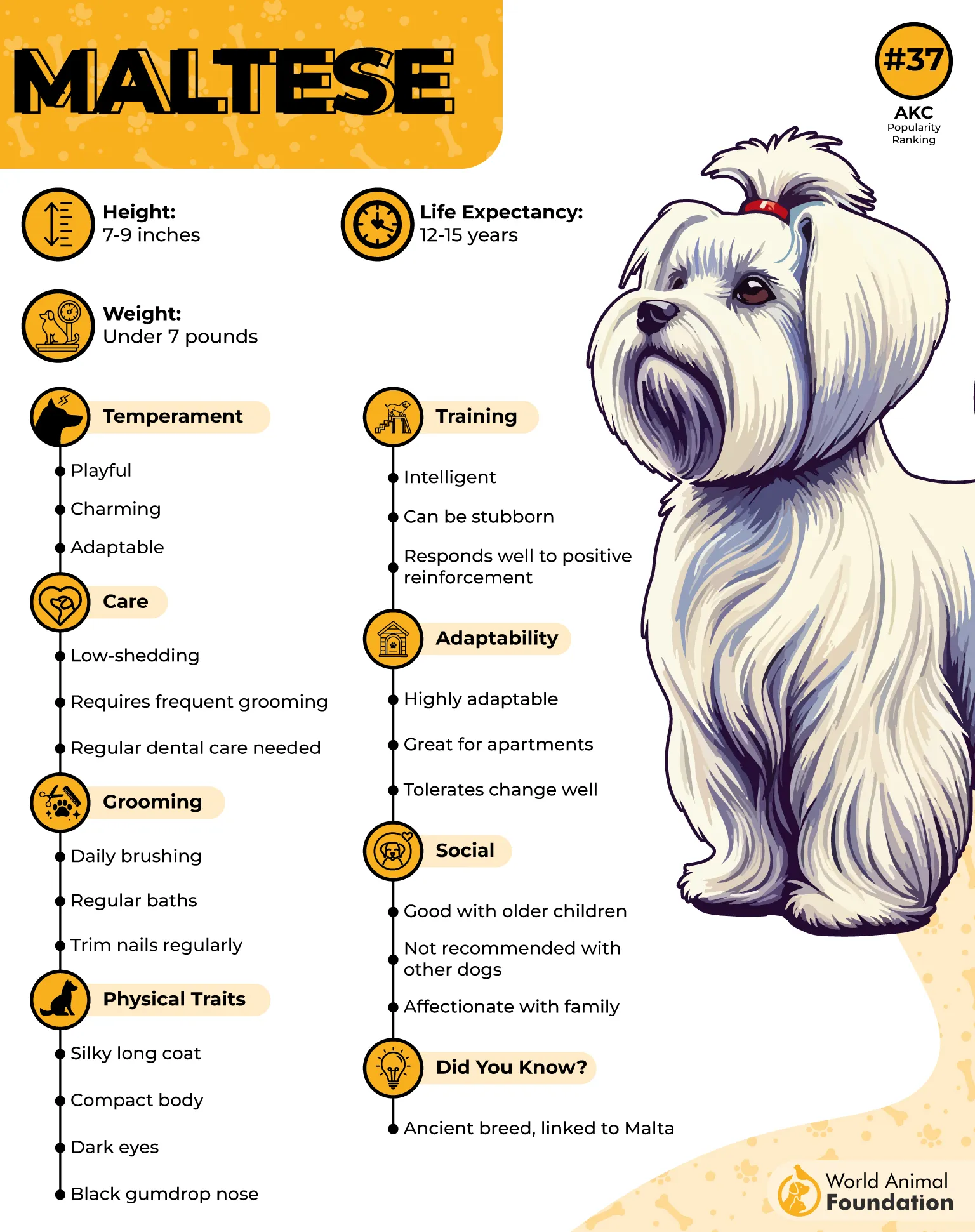
Their long, silky coat is a defining feature that requires consistent grooming. Daily brushing prevents tangles and matting, ensuring their fur remains smooth. Regular trimming around the eyes keeps their vision clear and avoids irritation.
A well-balanced diet is crucial for maintaining their energy levels. Small-breed formulas with high-quality ingredients support their metabolism. Portion control is necessary, as overeating can lead to weight issues despite their naturally active nature.
Maltese dogs are highly alert, making them excellent watchdogs despite their small stature. They tend to notify their owners of any unusual activity. Training helps manage excessive barking, ensuring they remain attentive without becoming overly vocal.
Fun Fact
Maltese dogs have been companions to royalty for centuries. Ancient civilizations, including the Greeks and Romans, prized them for their elegance and charm, often featuring them in artwork and literature.
Conclusion
A predictable dog brings stability, making daily interactions effortless and enjoyable. Whether in a bustling household or a quiet home, a dependable breed ensures a sense of security. Their even temperament allows for easier training, socialization, and companionship without unnecessary stress. Unlike some mixed-breed dogs with unknown traits, these dogs offer consistent behavior, making them ideal for a relaxed lifestyle.
Other breeds, such as Bernese Mountain Dogs and Shih Tzus, are also known for their calm and steady nature. They exhibit the reliability and predictability that many dog owners value.
Choosing a low-unpredictability breed means fewer surprises and more confidence in your pet’s behavior. These dogs remain calm in various situations, making them excellent for families, seniors, and individuals with structured routines. Even compared to highly trainable dogs, guard dogs, or different dog breeds, they excel in stability. Their steady nature strengthens the bond between pet and owner, reducing concerns about dog attacks or erratic behavior.
From affectionate lap dogs to gentle giants, each breed on this list offers reliability and ease of ownership. A well-balanced dog enhances daily life, bringing consistency, trust, and unwavering loyalty for years to come.


